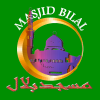Zakat Resources

Zakat Essentials
Zakat, or zakat al-mal, means stands as the third pillar of Islam, coming immediately after salat, the daily ritual prayer.
Every Muslim possessing the designated minimal amount of wealth, (nisab), for the full cycle of a lunar year must, as a matter of worship, satisfy the duty of paying zakat.
Unfortunately, the calculation of zakat has become unclear to many Muslims because of the many different kinds of wealth they may have.
Zakat spreads tranquility and peace in society because it secures the weak and their dependents with the guarantee of certain provision, shelter, and access to essential communal facilities. The mystery of zakat is not only that it links one to others by a sense of personal responsibility, but that it binds everyone to the individual through an obligation of sufficiency. There is no greater bulwark against social disintegration.

Categories of Zakatable Wealth
All possessions can be classified into either zakatable or non-zakatable wealth. For the purpose of zakat calculation, Muslim scholars have established five categories of zakatable wealth:
- Personal Zakatable Wealth: This includes money on hand and in bank accounts, stocks, and money held in retirement and pension accounts.
- Business Zakatable Wealth: This is further classified in two categories:
- Trading goods and liquid assets including business inventory
- Exploited assets such as rented properties and factories
- Agricultural Produce:
- Crops from irrigated land, wherein the irrigation system entails costs and labor
- Crops from non-irrigated land watered by rain or natural springs
- Livestock: Animals raised for commercial purposes— primarily sheep, goats, cattle and buffalo
- Treasure (rikâz): This includes buried valuables or natural resources, such as oil, precious metals, and gemstones. It can be classified more specifically as:
- Hidden windfalls and discovered fortunes
- Oil and mining

Non-Zakatable Wealth
In general, zakat is calculated on personal net worth, excluding properties and items for personal, family, and commercial use. Public properties are also non-zakatable. Below is a partial list of wealth that is zakat-exempt:
Property for Personal, Family, and Commercial Use: This category contains seven primary kinds of wealth:
- Food: As stored for consumption by an individual or family
- Clothing: All personal and family apparel
- Residence: Owned and occupied by the owner, including furnishings, utensils, and apparatus used for basic needs and necessity
- Transportation: The means of personal and family transport, such as vehicles used by an owner and family members
- Domestic Animals and Poultry: If used for household food and needs.
- Tools: Devices, instruments and equipment used in one’s personal business
- Agricultural Land: The land itself, animals and equipment used in cultivation
Property in Public Trust: Properties used for mosques, schools, hospitals, orphanages and other public service; those designated as charitable endowments (waqf) for the benefit of the needy, and the funds generated from such properties are all non-zakatable.
Unlawful Wealth: Only lawful assets are worthy of the blessing of zakat. Zakat cannot be calculated on prohibited or unlawful wealth.

Zakat al-Fitr
Zakat al-Fitr, or the Zakat of Breaking the Fast of Ramadan, is the special obligatory paid by all Muslims at the end of the Ramadan fasting month.
It is also called Sadaqat al-Fitr, “the Charity of Breaking the Fast” of Ramadan, and Zakat al-Fitrah, because it is a mandatory charity due on every Muslim at the end of Ramadan, regardless of age or gender.
Zakat al-Fitr differs from other kinds of alms or charity in that it is imposed on the individual Muslim and not on his or her measures of wealth or earnings.
It’s $15 to $20 per person for the 2022/1443 Ramadan year.

